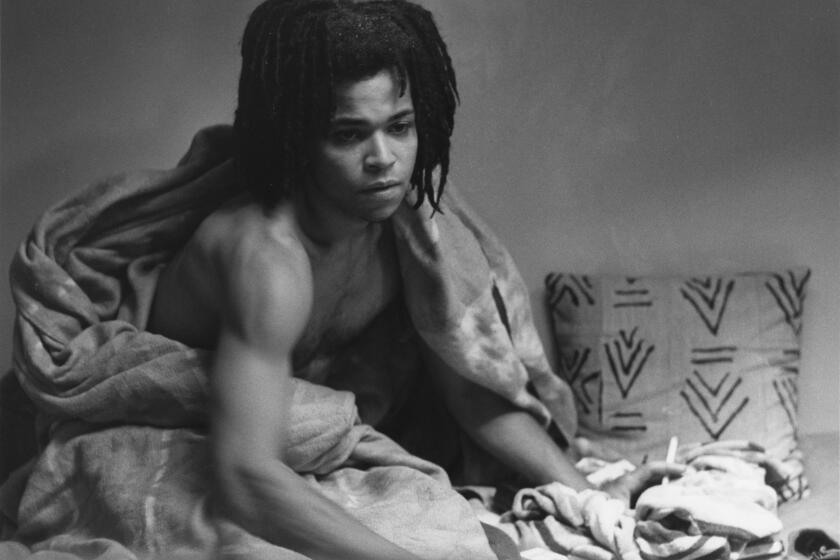Critic’s Notebook: Not sold on this summer’s movie season
This year’s summer movie season is coming to an end and, if you’re like me, it’s hard not to say good riddance. As Shakespeare would have put it if reviewing films had been his line of work, for critics the warm weather months are “the summer of our discontent.”
I say this despite the fact that there have been some truly memorable motion pictures this summer, even ones from major studios. If you go to movies with any regularity you know that any season that produces both “Toy Story 3” and “Inception” has got to have something going for it.
And, of course, there have also been the good smaller films that more and more often come out in the summer as distribution companies realize that counterprogramming can work and that audiences don’t necessarily stop thinking when the weather gets nice.
Documentaries were especially strong this season, including “The Tillman Story,” “Countdown to Zero,” “ Henri-Georges Clouzot’s Inferno” and “A Film Unfinished.” American independent standouts were Sundance favorites “Winter’s Bone” and “Cyrus,” and winners from overseas include “Animal Kingdom,” “Mademoiselle Chambon,” “Lebanon,” “Kisses” and “Anton Chekhov’s The Duel.”
So, if so many good things were out there, why all the complaints about the summer?
Unfortunately, all these pleasures come with asterisks attached. If it weren’t troubling enough that there were so few noteworthy films from major studios, the fact is that neither “Toy Story 3” nor “Inception” are classic studio products.
The completely engaging “Toy Story” sequel is a product of the remarkable folks at self-contained (though Disney-owned) Pixar, an entity that has earned the right not to have to answer to others when it comes to creative decisions.
Similarly, “Inception’s” potent brand of popular entertainment exists because Christopher Nolan’s financial successes have insulated him from meddling and allowed him to turn out films with a minimum of interference.
What unites both these productions is the heretical situation in which neither Nolan nor the Pixar crew pay any attention to the studio edict that only the lowest common denominator films succeed in the summer. Hardly business as usual for Hollywood.
As far as the smaller films go, the sad reality of the current exhibition business is that the ones I mentioned usually play so briefly that by the time adults work up the nerve to see them the films have gone from theaters without a trace. Small films that are allowed to build, like “Winter’s Bone” and the Banksy documentary “Exit Through the Gift Shop,” are much more the exception than the rule. So having these good films around doesn’t do the film culture much good if too few people go to see them.
My complaints, however, shouldn’t be confused with any sense that this particular summer is somehow worse than others that have come before. In fact, the opposite is true. The reason this summer is depressing is that it is exactly like the others that preceded it, a reinforcement of trends and situations that have become all too familiar.
For summer is the season when Hollywood’s financial needs and the studios’ modus operandi for dealing with them are most nakedly revealed. It’s the season when it is impossible to escape from the reality of how little interest the majors have in films that are not pre-sold in one way or another, where executives can’t convince themselves that a big payday is a sure thing. In other words, how little interest there is in films for which functioning adults are the core audience.
I know, I know, I’ve pounded this drum a thousand times before this, but that doesn’t make the situation any less true or any less dire. If you don’t believe me, think back on the posters you saw in the lobby if you were at a multiplex this summer. How many of those films look appealing to those untrustworthy people older than 30? More to the point, when potentially appealing films did appear in theaters, how many did you actually go to?
Blame for the current movie crisis lies as much with audiences as studios. Like people burned by love who refuse to meet new people, disappointed adult filmgoers can be their own worst enemy. The adult audience has to make its presence felt, it has to be willing to be disappointed by well-intentioned films if it wants its needs to be taken seriously, even in the summer.
Ironically, one of the best films I’ve seen in the last few months was HBO’s autism-themed “Temple Grandin,” which I caught up with on DVD. It earned five key Emmys and was a major feather in HBO’s cap. But would any studio have financed a film with such an unusual protagonist? And more to the point, how many people would have gone to a theater to see it, no matter what the reviews were like? The movie business is in a crisis that won’t go away and there’s more than enough blame to go around.
kenneth.turan@latimes.com
More to Read
Only good movies
Get the Indie Focus newsletter, Mark Olsen's weekly guide to the world of cinema.
You may occasionally receive promotional content from the Los Angeles Times.










